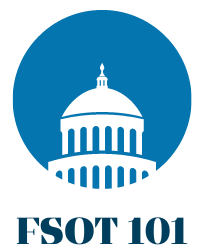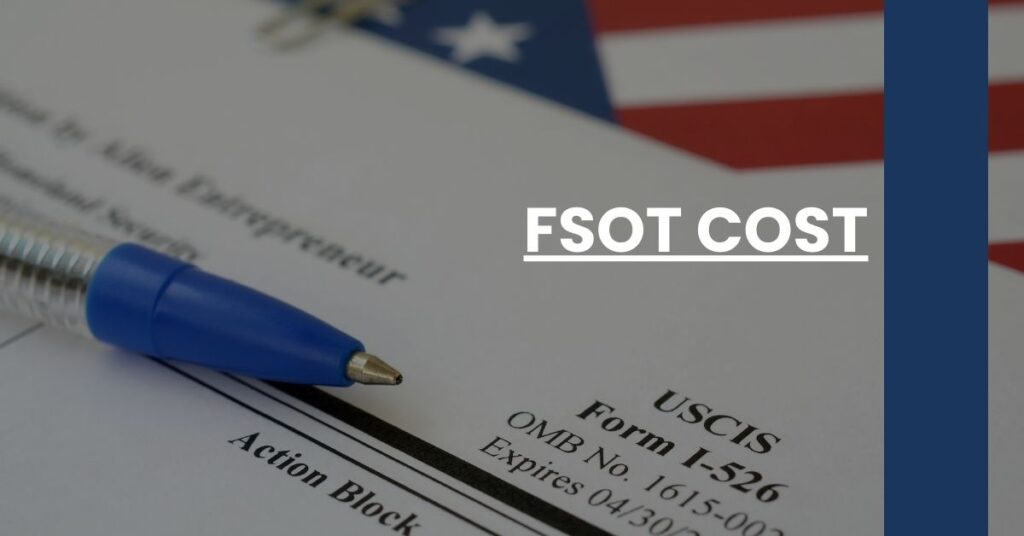The FSOT, or Foreign Service Officer Test, is a critical step for those aspiring to become diplomats with the U.S. Department of State—and the good news is, registering for the FSOT is free of charge. However, a $72 fee applies if you fail to cancel your test within 48 hours of your appointment. Beyond the test, potential costs include study materials, travel, and lodging, should you need them.
In this article, you’ll learn about:
- The breakdown of any fees associated with the FSOT
- Additional costs and how they add up
- Comparing the FSOT’s value against its price tag
Read on to understand the full financial scope of becoming a Foreign Service Officer and how to smartly navigate the FSOT costs.
Introduction to the FSOT
If you’ve set your eyes on becoming a Foreign Service Officer (FSO), the Foreign Service Officer Test (FSOT) is a crucial hurdle in that ambitious journey. Serving as an entry point into the foreign service, the FSOT is designed to evaluate your knowledge, skills, and capabilities against the stringent demands of diplomatic responsibilities. Before delving into the intricacies of the test itself, you should understand the financial aspect of this important step. While the financial cost of the FSOT may not seem as daunting as other professional exams, there are subtleties and indirect expenses that merit your attention.
The FSOT Cost Breakdown
Contrary to many certification exams, you’ll find a pleasant surprise when registering for the FSOT – it’s offered at no upfront charge. That’s right, you can schedule your test without paying a registration fee. However, it’s essential to respect this commitment. A “no show” fee of $72 is levied if you cancel less than 48 hours before your scheduled appointment, ensuring only serious candidates take up valuable testing slots. For complete details on this policy, the U.S. Department of State’s official resource is your go-to guide.
Hidden or Indirect Costs
While the direct FSOT cost might be zero, don’t forget to account for indirect expenses. Your dedication to passing the FSOT requires a significant investment of time and effort, which, depending on your current job or financial status, could translate into monetary value. Furthermore, you may choose to purchase study materials or take preparatory courses. These additional investments are aimed at fortifying your chances of success and should be factored into your overall budget for embarking upon the Foreign Service career path.
Additional Costs Associated with the FSOT
Beyond the test itself, other costs can accumulate. Travel expenses and accommodations, if the test center is far from your home, should be planned ahead. As future diplomats are expected to exhibit resourcefulness, researching affordable yet comfortable options can be part of your preparation ritual. Another aspect is study materials, which vary extensively from free online resources to premium preparation guides and practice tests.
Study Materials and Resources
The art of preparation is both an investment in success and an additional cost. It’s worthwhile to explore a mix of free and paid resources. Quality guides and practice exams can be beneficial, but it’s important to strike a balance between comprehensive preparation and overspending. Consider your learning style and opt for materials that will best aid your study regimen.
Understanding the Value of the FSOT
As you ponder the costs associated with the FSOT, you should also weigh the long-term value of passing the test. Becoming an FSO not only paves the way for an esteemed career representing your country globally but also comes with a competitive salary and benefits package that can make any expenses incurred seem minuscule in comparison.
Potential Career Benefits
Beyond the direct financial gains, the role of an FSO offers unique, intangible rewards: making a difference on the global stage, engaging with varied cultures, and supporting your nation’s interests abroad. When you consider these substantial professional and personal growth opportunities, the time and monetary investment in the FSOT may appear as nothing more than a small stepping stone towards a rewarding and fulfilling career.
Diplomatic Salaries and Progression Although starting salaries for entry-level FSOs vary according to experience and qualifications, they are generally competitive within the federal service pay scale. Alongside base pay, benefits include housing allowances when stationed abroad, healthcare, and education for dependents, further enhancing the value of this career choice. With established progression structures, the financial rewards can increase significantly as you climb the career ladder within the State Department.
For those intrigued by the comprehensive compensation overview and keen on transforming the FSOT cost into a meaningful investment for a longstanding diplomatic career, exploring the U.S. Department of State’s careers website will provide further insight and enrichment.
Transitioning into a career as a Foreign Service Officer carries a wealth of advantages that, for most, far exceed the initial costs—both seen and unseen—of taking the FSOT. Understanding this balance between expense and reward is critical as you prepare to take this significant step toward your international career aspirations. What lies ahead is not just an exam, but a gateway to diplomacy, adventure, and positive global influence.
Waivers and Financial Assistance
Although the FSOT itself does not incur a fee, you may find yourself concerned with the surrounding costs related to preparation materials, travel, and time invested. It’s natural to wonder if there are any waivers or financial assistance options available to help mitigate these expenses. Unfortunately, there isn’t a structured financial aid program specifically tailored to prospective FSOT candidates.
However, you should not be discouraged. You may still find opportunities for support through academic or professional development scholarships within your current institution or workplace. If you’re a veteran or currently serving in the military, you may qualify for reimbursement of test fees under the GI Bill benefits for licensing and certification tests. Visit the U.S. Department of Veterans Affairs website for more details at www.va.gov.
Amidst these challenges, it’s essential to keep a keen eye on your budget and seek out the wealth of free study resources available online. Remember, your journey to becoming a Foreign Service Officer is an investment in your future—one that could yield significant returns both personally and professionally.
Comparing FSOT Costs to Other Professional Exams
When considering the FSOT cost, it’s helpful to compare it against other professional certification and entrance exams. Exams such as the GRE, LSAT, and MAT can range between $105 to $230 or more, not including additional study materials or preparatory courses. This considerable contrast highlights the accessibility of the FSOT and underscores the State Department’s commitment to encouraging a diverse array of applicants, regardless of their financial status.
By looking at the bigger picture, the absence of a registration fee for the FSOT shines as a unique advantage among its counterparts. This may alleviate some financial pressure, allowing you to focus more on preparing content-wise for the FSOT rather than how to finance the process. When deciding to pursue a career in foreign service, considering these comparative costs can provide you with reassurance that the FSOT is, relatively speaking, a financially feasible step towards your career goals.
Impact of Failing the FSOT
Let’s talk about a scenario that many candidates may worry about: What happens if you don’t pass the FSOT on your first try? Although there isn’t a direct financial penalty—aside from the potential “no show” fee if applicable—the true cost is in time. You must wait another year before retaking the test, which can delay your entry into the foreign service.
That being said, this period can be seen as an opportunity. If your first attempt was unsuccessful, use the time wisely to further prepare and strengthen your application. The ‘cost’ of failing the FSOT extends beyond money; it’s also about perseverance and the willingness to learn from the experience. Cultivating resilience and fine-tuning your understanding of foreign service work can be immensely beneficial when you approach the test again.
Conclusion: Is the FSOT Cost Worth It?
Ultimately, the decision to pursue a career as a Foreign Service Officer involves various considerations, with the FSOT cost being just one. While there are indirect costs to account for, the opportunity to serve your country, live abroad, and engage in meaningful diplomatic work is a rare and valuable one.
Since you aren’t required to pay a traditional registration fee for the FSOT, you can redirect what you might have spent there into quality study materials, travel costs if necessary, or saving for future career-related expenses. Keep in mind the diplomatic career path is more than just a job; it’s a lifestyle that promises diversity, challenge, and opportunity in equal measure.
Taking the FSOT is worth more than any fee. Its cost is a gateway to a career of unparalleled experiences and the chance to make a tangible difference in the world. Each dollar and hour you invest in preparation is building towards that future. When you consider the benefits, both tangible and intangible, the FSOT cost—a combination of hard work, determination, and potential indirect fees—becomes an investment in an extraordinary career that has the power to shape lives, including your own.
As you continue on your journey to becoming a Foreign Service Officer, remember that the cost of the FSOT is not a barrier but a step forward, asking you to weigh the value of your aspirations against the resolve within you. Embrace the preparation process, conquer the hurdles, and envision the horizon of diplomatic service that lies ahead.
FSOT cost detailed: Understand fees for the Foreign Service Officer Test, including study materials, travel expenses, and value analysis.

